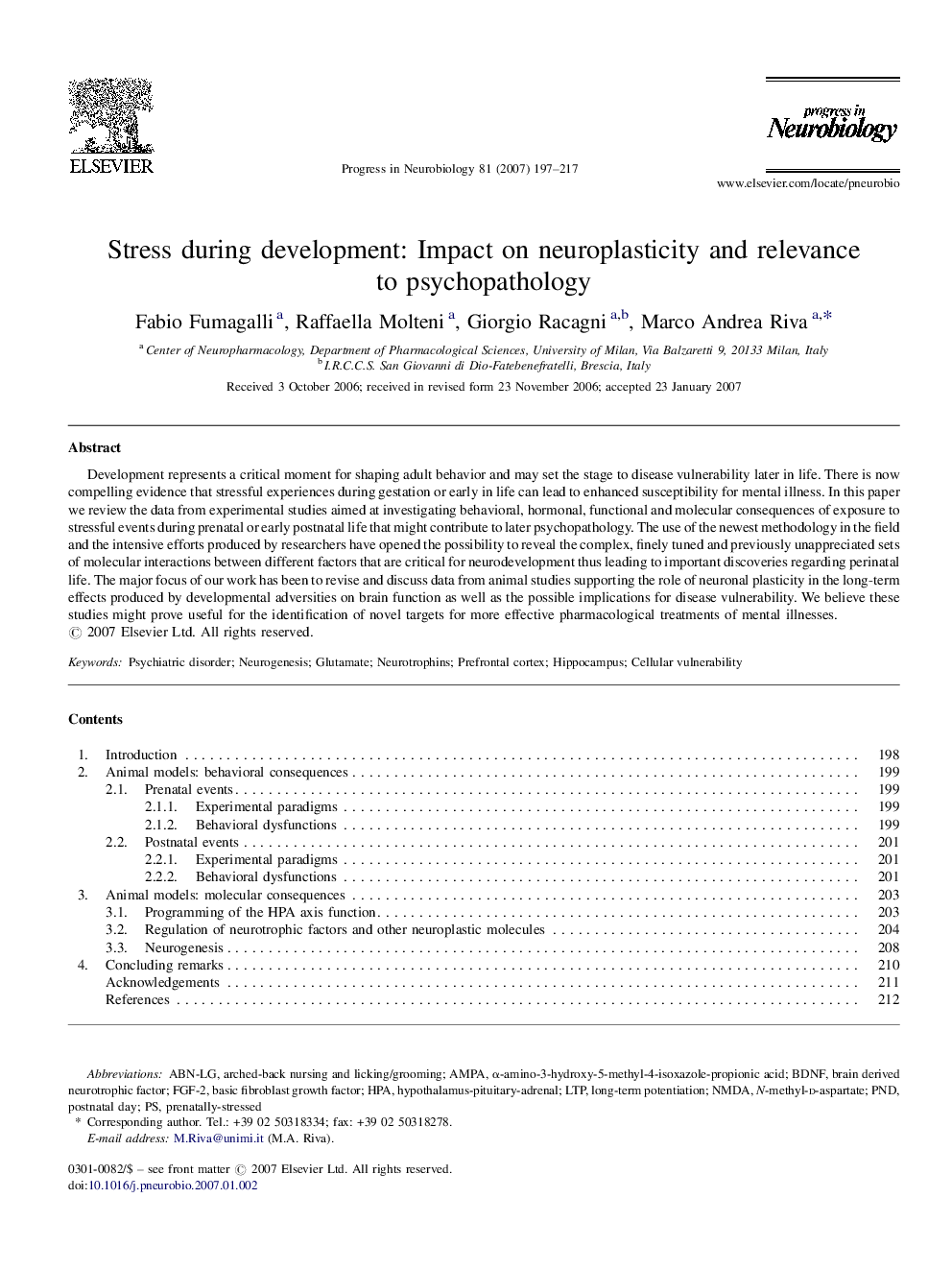| Article ID | Journal | Published Year | Pages | File Type |
|---|---|---|---|---|
| 4353998 | Progress in Neurobiology | 2007 | 21 Pages |
Abstract
Development represents a critical moment for shaping adult behavior and may set the stage to disease vulnerability later in life. There is now compelling evidence that stressful experiences during gestation or early in life can lead to enhanced susceptibility for mental illness. In this paper we review the data from experimental studies aimed at investigating behavioral, hormonal, functional and molecular consequences of exposure to stressful events during prenatal or early postnatal life that might contribute to later psychopathology. The use of the newest methodology in the field and the intensive efforts produced by researchers have opened the possibility to reveal the complex, finely tuned and previously unappreciated sets of molecular interactions between different factors that are critical for neurodevelopment thus leading to important discoveries regarding perinatal life. The major focus of our work has been to revise and discuss data from animal studies supporting the role of neuronal plasticity in the long-term effects produced by developmental adversities on brain function as well as the possible implications for disease vulnerability. We believe these studies might prove useful for the identification of novel targets for more effective pharmacological treatments of mental illnesses.
Keywords
PNDα-amino-3-hydroxy-5-methyl-4-isoxazole-propionic acidFGF-2N-methyl-d-aspartateNMDAAMPABDNFPsychiatric disorderlong-term potentiationLTPpostnatal daybrain derived neurotrophic factorbasic fibroblast growth factorprefrontal cortexHPANeurotrophinsNeurogenesishypothalamus-pituitary-adrenalHippocampusglutamate
Related Topics
Life Sciences
Neuroscience
Neuroscience (General)
Authors
Fabio Fumagalli, Raffaella Molteni, Giorgio Racagni, Marco Andrea Riva,
